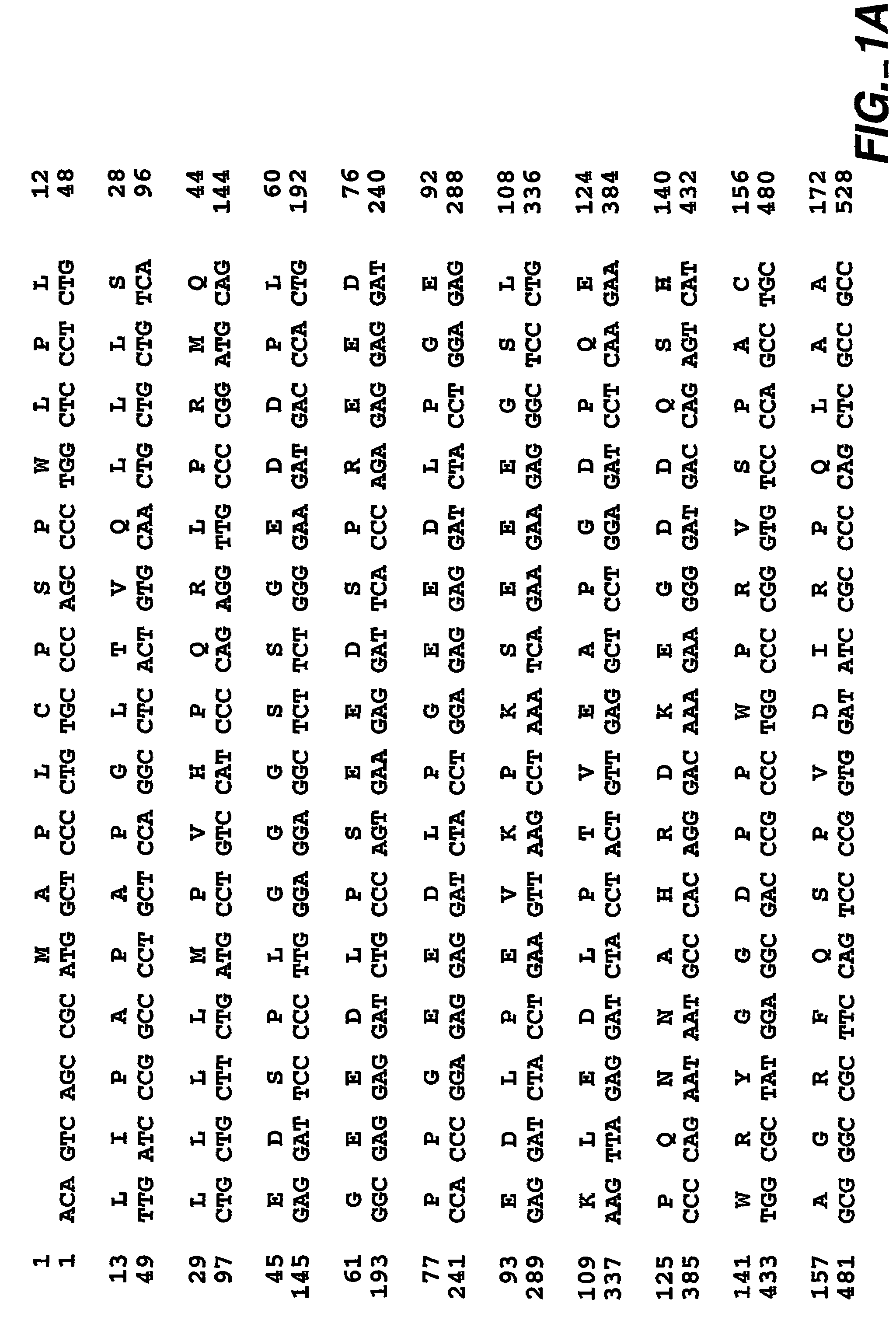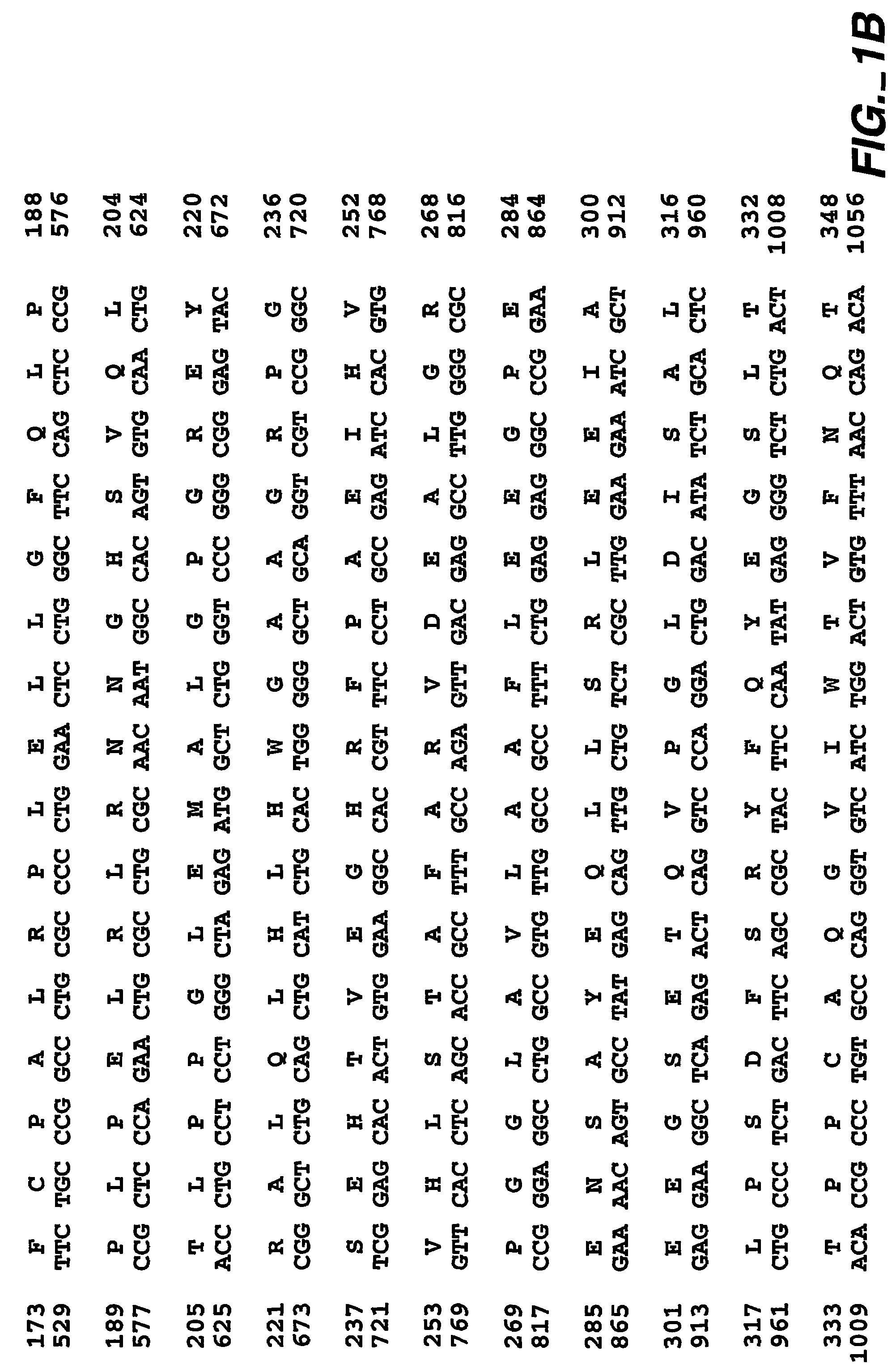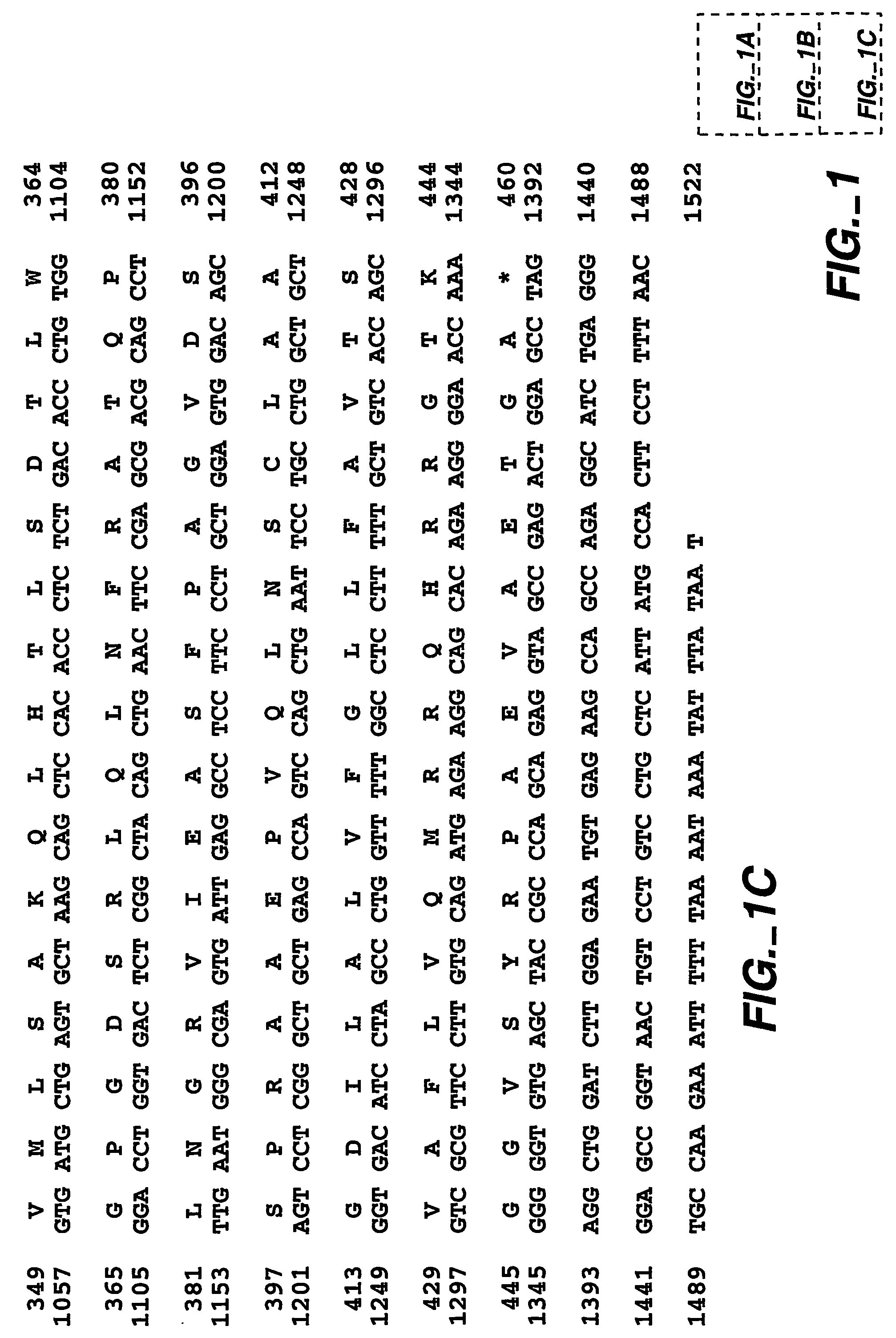MN/CA IX and cancer prognosis
a cancer prognosis and gene technology, applied in the field of medical genetics, can solve the problems of poor prognostic factors, low expression of ca ix, and remains a great challenge for clinicians and oncologists, and achieve the effect of poorer prognosis
- Summary
- Abstract
- Description
- Claims
- Application Information
AI Technical Summary
Benefits of technology
Problems solved by technology
Method used
Image
Examples
example 1
Localization of CA IX Expression in Gastric Cancer Cells
[0182]The distribution and expression pattern of CA IX was investigated by immunohistochemistry. Tissue sections were stained with anti-CA IX antibody M75. CA IX was found in the non-neoplastic gastric mucosa, intestinal metaplasia and significantly less often in gastric cancer. Occasionally the immunostaining was heterogeneous: for example, poorly differentiated (G3) intestinal type gastric cancer exhibited no immunostaining of the tumor cells in the mucosa, and intense staining in a subset of the tumor cells infiltrating the muscularis propria (Hematoxylin counterstain).
[0183]Overall, CA IX was found in non-neoplastic gastric mucosa of every patient studied. It was confined to foveolar epithelial cells, fundic and antral glands. Intestinal metaplasia was observed in 15 (26.3%) patients, and CA IX was expressed at the brush border of the intestinal metaplasia in 10 patients (66.7%). CA IX was expressed in gastric cancer cells ...
example 2
Quantitative Analysis of CA IX Expression in Gastric Cancers
[0185]CA9 mRNA and CA IX protein expression were then assessed by realtime quantitative PCR and Western blotting. Tumor samples were obtained from 18 patients with gastric cancer and matched corresponding non-neoplastic gastric mucosa was also available from those patients. CA9 mRNA levels in cancer and non-cancer tissues were assessed in 10 patients, whereas Western blot analysis was performed in 12 cases. In 5 cases, both Western blot analysis and realtime quantitative PCR was performed in the same patient, allowing a direct comparison of the expression levels of CA IX protein and CA9 mRNA in gastric cancer and non-neoplastic gastric mucosa. Overall the levels of CA IX protein and CA9 mRNA were significantly decreased in gastric cancers compared to the matched non-neoplastic mucosa (p=0.04). The direct comparison of 5 cases in which both CA IX protein and CA9 mRNA levels were assessed, revealed that in all cases reduced p...
example 3
Prognostic Significance of CA IX Expression in Gastric Cancer
[0186]Survival data were obtained from 23 patients with gastric cancer undergoing gastric cancer resection. According to the immunohistochemical score as outlined above two groups of patients were classified as group A with low CA IX expression (IRS≦3) versus group B with high CA IX expression in the cancer cells (IRS>3). Post-operative survival time for patients with high CA IX expression was significantly shorter than in patients without or low CA IX expression (p=0.0281) (FIG. 5). Interestingly, expression of CA IX was very prominent at the site of infiltration of the muscularis propria, indicating that despite the overall loss of CA IX expression in gastric cancer, the sustained or re-expression of CA IX at the invasion front may contribute to the overall poor survival in patients with increased CA IX expression.
PUM
| Property | Measurement | Unit |
|---|---|---|
| pore size | aaaaa | aaaaa |
| temperature | aaaaa | aaaaa |
| temperature | aaaaa | aaaaa |
Abstract
Description
Claims
Application Information
 Login to View More
Login to View More - R&D
- Intellectual Property
- Life Sciences
- Materials
- Tech Scout
- Unparalleled Data Quality
- Higher Quality Content
- 60% Fewer Hallucinations
Browse by: Latest US Patents, China's latest patents, Technical Efficacy Thesaurus, Application Domain, Technology Topic, Popular Technical Reports.
© 2025 PatSnap. All rights reserved.Legal|Privacy policy|Modern Slavery Act Transparency Statement|Sitemap|About US| Contact US: help@patsnap.com



